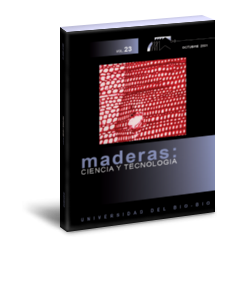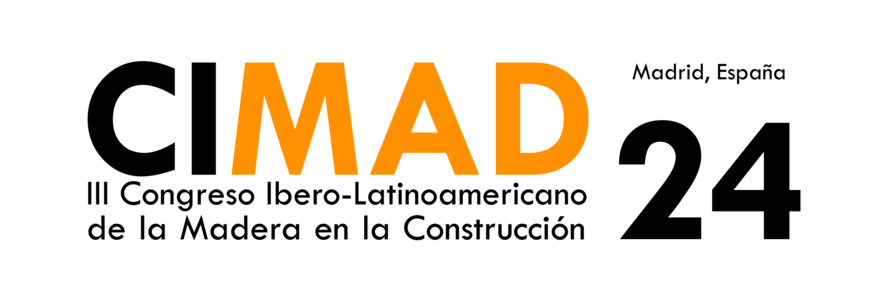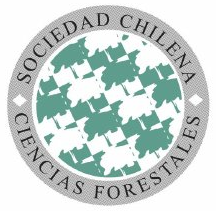Synergistic influence of flame retardant additives and citric acid on the functional properties of rice husk/wood blended particleboards
Keywords:
Flame retardants, particleboards, physical property, mechanical properties, thermal properties, waste natural fiberAbstract
The selected functional properties of rice husk/wood blended particleboards which include thermal analysis, limiting oxygen index, morphological analysis, and mechanical properties have been investigated. Rice husk/wood particleboards were produced with one step hot press casting technique using citric acid to improve the compatibility in the particleboards with calcium oxide and aluminum oxide as flame retardants. The results showed improvement in the mechanical properties, flame retardancy, and thermal stability with the addition of flame retardants to the particleboards. The aluminum oxide synergy with citric acid in rice husk/wood particleboards gave the best flame retardancy.
Downloads
References
Abdul Khalil, H.P.S.; Chong, E.W.N.; Owolabi, F.A.T.; Asniza, M.; Tye, Y.Y.; Tajarudin, H.A.; Paridah, M.T.; Rizal, S. 2018. Microbial-induced CaCO3 filled seaweed-based film for green plasticulture application. J Clean Prod 199: 150-163. https://doi.org/10.1016/j.jclepro.2018.07.111
ASTM International Standard. ASTM. 2008. ASTM D 2863: Standard test method for measuring the minimum oxygen concentration to support candle-like combustion of plastics (oxygen index), ASTM International, West Conshohocken, PA, USA. https://doi.org/10.1520/D2863-08
Bakovic, S.; Potgieter, J.H.; deWaal, D.; Popovic, L. 2006. Replacing limestone and linseed oil in the synthesis of putty. J Appl Sci 6(5): 1009-1016. http://dx.doi.org/10.3923/jas.2006.1009.1016
Battegazzore, D.; Alongi, J.; Duraccio, D.; Frache, A. 2018. All natural high-density fiber-and particleboards from hemp fibers or rice husk particles. J Polym Environ 26(4): 1652-1660. https://doi.org/10.1007/s10924-017-1071-9
Baskaran, M.; Hashim, R.; Said, N.; Raffi, S.M.; Balakrishnan, K.; Sudesh, K.; Sulaiman, O.; Arai, T.; Kosugi, A.; Mori, Y.; Sugimoto, T. 2012. Properties of binderless particleboard from oil palm trunk with addition of polyhydroxyalkanoates. Compos Part B-Eng 43(3): 1109-1116. https://doi.org/10.1016/j.compositesb.2011.10.008
César, A.A. da. S.; Bufalino, L., Mendes, L. M.; Mesquita, R.G. de A.; Protásio, T.D.P.; Mendes, R.F.; Andrade, L.M.F. 2017. Transforming rice husk into a high-added value product: Potential for particleboard production. Ciênc Florest 27(1): 303-313. https://doi.org/10.5902/1980509826468
de Lima Mesquita, A.; Barrero, N.G.; Fiorelli, J.; Christoforo, A.L.; de Faria, L.J.G.; Lahr, F.A.R. 2018. Eco-particleboard manufactured from chemically treated fibrous vascular tissue of acai (Euterpe oleracea Mart.) Fruit: A new alternative for the particleboard industry with its potential application in civil construction and furniture. Ind Crop Prod 112: 644-651. https://doi.org/10.1016/j.indcrop.2017.12.074
de Melo, R.R.; Stangerlin, D.M.; Santana, R.R.C.; Pedrosa, T.D. 2014. Physical and mechanical properties of particleboard manufactured from wood, bamboo and rice husk. Mat Res 17(3): 682-686. http://dx.doi.org/10.1590/S1516-14392014005000052
Elbasuney, S. 2017. Novel multi-component flame retardant system based on nanoscopic aluminum-trihydroxide (ATH). Powder Technol 305: 538-545. https://doi.org/10.1016/j.powtec.2016.10.038
Galvan-Ruiz, M.; Baños, L.; Rodriguez-Garcia, M.E. 2007. Lime characterization as a food additive. Sens Instrum Food Qual Saf 1(4):169-175. https://doi.org/10.1007/s11694-007-9019-8
Giridhar, B.N.; Pande, K.K.; Prasad, B.E.; Bisht, S. S.; Vagdevi, H.M. 2017. Dimensional stabilization of wood by chemical modification using isopropenyl acetate. Maderas-Cienc Tecnol 19(1): 15-20. http://dx.doi.org/10.4067/S0718-221X2017005000002
Hull, T. R.; Witkowski, A.; Hollingbery, L. 2011. Fire retardant action of mineral fillers. Polym Degrad Stabil 96(8): 1462-1469. https://doi.org/10.1016/j.polymdegradstab.2011.05.006
Hashim, R.; Said, N.; Lamaming, J.; Baskaran, M.; Sulaiman, O.; Sato, M.; Hiziroglu, S.; Sugimoto, T. 2011. Influence of press temperature on the properties of binderless particleboard made from oil palm trunk. Mater Des 32(5): 2520-2525. https://doi.org/10.1016/j.matdes.2011.01.053
Jamil, M.; Kaish, A.B.M.A.; Raman, S.N.; Zain, M.F.M. 2013. Pozzolanic contribution of rice husk ash in cementitious system. Constr Build Mater 47: 588-593. https://doi.org/10.1016/j.conbuildmat.2013.05.088
Jia, P.; Zhang, M.; Hu, L.; Bo, C.; Zhou. Y. 2015. Synthesis, applications, and flame-retardant mechanism of a novel phosphorus-containing plasticizer based on castor oil for polyvinyl chloride. J Therm Anal Calorim 120(3): 1731-1740. https://doi.org/10.1007/s10973-015-4540-1
Japanese Industrial Standard. JIS. 2003. JIS A 5908: Particleboards. Japanese Standard Association. Tokyo, Japan. https://archive.org/details/jis.a.5908.e.2003
Kusumah, S.S.; Umemura, K.; Yoshioka, K.; Miyafuji, H.; Kanayama, K. 2016. Utilization of sweet sorghum bagasse and citric acid for manufacturing of particleboard I: Effects of pre-drying treatment and citric acid content on the board properties. Ind Crop Prod 84: 34-42. https://doi.org/10.1016/j.indcrop.2016.01.042
Lamaming, J.; Sulaiman, O.; Sugimoto, T.; Hashim, R.; Said, N.; Sato, M. 2013. Influence of chemical components of oil palm on properties of binderless particleboard. BioResources 8(3): 3358-3371. https://ojs.cnr.ncsu.edu/index.php/BioRes/article/view/BioRes_08_3_3358_Lamaming_Chemical_Components_Oil_Palm
Loh, Y.W.; H'ng, P.S.; Lee, S.H.; Lum, W.C.; Tan, C.K. 2010. Properties of particleboard produced from admixture of rubberwood and Mahang species. Asian J Appl Sci 3(5): 310-316. http://dx.doi.org/10.3923/ajaps.2010.310.316
Nagieb, Z.A.; Nassar, M.A.; El-Meligy, M.G. 2011. Effect of addition of boric acid and borax on fire-retardant and mechanical properties of urea formaldehyde saw dust composites. Int J Carbohydr Chem 2011 (Article ID 146763): 1-6. http://dx.doi.org/10.1155/2011/146763
Orellana, F.; Lisperguer, J.; Nuñez, C. 2014. Synthesis and characterization of polypropylene-silica, alumina and titania nanoparticles, prepared by melting. J Chil Chem Soc 59(1): 2389-2393. http://dx.doi.org/10.4067/S0717-97072014000100030
Paletto, M. 2017. Assessment of the thermal behavior of lignins from softwood and hardwood species. Maderas-Cienc Tecnol 19(1): 63-74. http://dx.doi.org/10.4067/S0718-221X2017005000006
Saari, N.; Lamaming, J.; Hashim, R.; Sulaiman, O.; Sato, M.; Arai, T.; Kosugi, A.; Nadhari, W. N. A.W. 2020. Optimization of binderless compressed veneer panel manufacturing process from oil palm trunk using response surface methodology. J Clean Prod 265: 121757. https://doi.org/10.1016/j.jclepro.2020.121757
Seo, H.J.; Kim, S.; Huh, W.; Park, K.W.; Lee, D.R.; Son, D.W.; Kim, Y.S. 2016. Enhancing the flame-retardant performance of wood-based materials using carbon-based materials. J Therm Anal Calorim 123(3): 1935-1942. https://doi.org/10.1007/s10973-015-4553-9
Sulaiman, N.S.: Hashim, R.: Hiziroglu, S.: Amini, M.H.M.: Sulaiman, O.: Selamat, M.E. 2016. Rubberwood particleboard manufactured using epichlorohydrin-modified rice starch as a binder. Cell Chem Technol 50(2): 329-338. http://www.cellulosechemtechnol.ro/pdf/CCT2(2016)/p.329-338.pdf
Sulaiman, N.S.; Hashim, R.; Sulaiman, O.; Nasir, M.; Amini, M.H.M.; Hiziroglu, S. 2018. Partial replacement of urea-formaldehyde with modified oil palm starch based adhesive to fabricate particleboard. Int J Adhes Adhes 84: 1-8. https://doi.org/10.1016/j.ijadhadh.2018.02.002
Suraya, N.L.M.; Owolabi, F.A.T.; Abdul Khalil, H.P.S.; Saurabh, C.K.; Paridah, M.T.; Asniza, M.; Samsul, R. 2018. Synergistic effect of oil palm based pozzolanic materials/oil palm waste on polyester hybrid composite. J Polym Environ 26: 4063-4072. https://doi.org/10.1007/s10924-018-1278-4
Temitope, A.K.; Onaopemipo, A.T.; Olawale, A.A.; Abayomi, O.O. 2015. Recycling of rice husk into a locally-made water-resistant particle board. Ind Eng Manage 4(3): 10001641. https://doi.org/10.4172/2169-0316.1000164
Umemura, K.; Ueda, T.; Munawar, S.S.; Kawai, S. 2012. Application of citric acid as natural adhesive for wood. J Appl Polym Sci 123(4):1991-1996. https://doi.org/10.1002/app.34708
Umemura, K.; Sugihara, O.; Kawai, S. 2013. Investigation of a new natural adhesive composed of citric acid and sucrose for particleboard. J Wood Sci 59: 203-208. https://doi.org/10.1007/s10086-013-1326-6
Vukusic, S.B.; Katovic, K.; Schramm, C.; Trajkovic, J.; Sefc, B. 2006. Polycarboxylic acids as non-formaldehyde anti-swelling agents for wood. Holzforschung 60(4): 439–444. https://doi.org/10.1515/HF.2006.069
Widyorini, R.; Yudha, A.P.; Isnan, R.; Awaluddin, A.; Prayitno, T.A, Ngadianto, A.; Umemura, K. 2014. Improving the physico-mechanical properties of eco-friendly composite made from bamboo. Adv Mater Res 896: 562-565. https://doi.org/10.4028/www.scientific.net/AMR.896.562
Xu, J.; Sugawara, R.; Widyorini, R.; Han, G.; Kawai, S. 2004. Manufacture and properties of low-density binderless particleboard from kenaf core. J Wood Sci 50(1): 62-67. https://doi.org/10.1007/s10086-003-0522-1
Zhao, W.J.; Hu, Q.X.; Zhang, N.N.; Wei, Y.C.; Zhao, Q.; Zhang, Y.M.; Dong, J.B.; Sun, Z.Y.; Liu, B.J.; Li, L.; Hu, W. 2017. In situ inorganic flame retardant modified hemp and its polypropylene composites. RSC Adv 7(51): 32236-32245. https://dx.doi.org/10.1039/C7RA04078D
Downloads
Published
How to Cite
Issue
Section
License

This work is licensed under a Creative Commons Attribution 4.0 International License.
Los autores/as conservarán sus derechos de autor y garantizarán a la revista el derecho de primera publicación de su obra, el cuál estará simultáneamente sujeto a la Licencia de Reconocimiento de Creative Commons CC-BY que permite a terceros compartir la obra siempre que se indique su autor y su primera publicación esta revista.
































